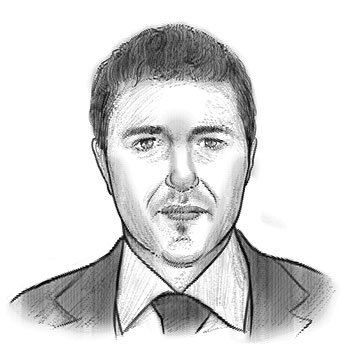Consulting and representation for voluntary declarations
There are many reasons to submit a voluntary declaration with exemption from penalty (known in Switzerland and the Principality of Liechtenstein as a “disclosure”): the increasing number of so-called “tax CDs”, the increasingly tight network of international taxation agreements, the possibility of “accomplices” also threatened with punishment submitting their own voluntary declarations, and – not least – the gathering debate about the future abolition or restriction of voluntary declarations. The automatic exchange of information (AEOI) (of bank details) between most financial administrations is yet another reason. Taken together, all of these factors are prompting increasing numbers of taxable individuals to seek pertinent advice from a specialised lawyer. In addition to these generally valid reasons, there are individual arguments in favour of submitting a voluntary declaration in each individual case too.
Prerequisite for a successful voluntary declaration with exemption from penalty from a German perspective
The regulations in Germany were significantly tightened with effect from 1 January 2015. The existing five-year period was extended to ten years in the redrafted Section 371 of the German Tax Code. As a result, since 2015, individuals have had to disclose ten years to obtain immunity from prosecution.
Payment of evaded taxes within a certain period of time is yet another prerequisite. One aspect that was newly added is the fact that, since 2015, 6% interest p.a. must be paid on evaded taxes to obtain immunity from prosecution, so substantial amounts can be calculated on previous years.
Another basic prerequisite is that all previously undeclared income must be subsequently declared both correctly and in full. No further amendments can be made once the voluntary declaration has been submitted, so immunity from prosecution can no longer be achieved.
Liechtenstein trusts
In-depth knowledge of German taxation and criminal law and, above all else, Liechtenstein trust legislation – a factor which is often neglected – is essential when it comes to lawyers or tax advisers providing competent advice and representation to the trustors or beneficiaries of Liechtenstein trusts who wish to submit a voluntary declaration in Germany in order to avoid penalties.
Being a personal reason for reversing a penalty, the voluntary declaration with exemption from penalty can result in tax evasion penalties being dropped. But to settle a Liechtenstein trust that was previously undeclared for tax purposes correctly (and therefore in a legally compliant way), a number of concealed tax law hurdles must be overcome, which requires in-depth knowledge of both German and Liechtenstein tax law and fiscal penalty law. Even if the trust’s assets were administered in a third country such as Switzerland, this does not change the circumstances of the case because the Liechtenstein trust is the legal entity between the trustor and/or the beneficiary and the trust’s assets, and as such must be taken into consideration accordingly for taxation purposes.
A number of pitfalls must therefore be taken into consideration if the case is to be resolved correctly for tax purposes, starting with the establishment of the trust, moving on to the ongoing disbursements to beneficiaries and any additional donations, and right through to any “final disbursements” to the ultimate beneficiary or beneficiaries. Anyone who cannot rely on the requisite legal knowledge and experience in dealing with Liechtenstein trusts provided by a specialised law firm easily overlooks factors which are relevant from a tax point of view, thus jeopardising the entire success of a voluntary declaration. This is because for a voluntary declaration with exemption from penalty to achieve the desired effect, all the facts relevant to the tax situation must be disclosed, and the resulting taxation must be calculated correctly and paid as soon as possible after the voluntary declaration has been submitted along with interest and (in certain cases) a possible surcharge of 5%.
Voluntary declaration for private accounts held in Switzerland and Austria
We Viehbacher lawyers and tax advisers are also frequently consulted on the subject of voluntary declarations relating to previously undeclared income from assets in private accounts and private portfolios held in Switzerland and/or Austria. Here, too, experience has shown that preparing a legally compliant voluntary declaration, including repaying taxes and interest, can be a time-consuming process, depending on the period for which the investment has remained undeclared, the form of investment selected and the quality of the documentation made available to us. But in such cases, too, we take the components of a voluntary declaration in terms of civil law (e.g. inheritance law, family law) and public law (e.g. civil service law) into consideration, which enables us to provide comprehensive consulting for the benefit of our clients.
Extensive experience
As Viehbacher lawyers and tax advisers, in recent years we have successfully advised and represented numerous individuals and families in the correct drafting and submission of voluntary declarations.
At our local offices in Germany (Munich), Liechtenstein (Triesen), Switzerland (Zurich), Austria (Vienna) and Italy (Brixen), we have the ideal conditions for painstakingly, punctually and discretely preparing voluntary declarations.
Our specialists prepare legally sound voluntary declarations for wealthy individuals and families under the direction of Johannes N. Viehbacher, who, thanks to his dual qualification as a German and Liechtenstein lawyer, has for just under ten years been thoroughly acquainted with both Liechtenstein trust law and German criminal and taxation law, as well as the relevant taxation agreements (TIEA and DBA) and supreme court verdicts. This service is of course provided not just for the trustors, boards of trustees and beneficiaries of Liechtenstein trusts, but also for the holders of previously undeclared private accounts held in Switzerland, Austria or Liechtenstein.
Our mission
We do not presume to judge our clients and respect their personal privacy and whatever motives they wish to disclose to us. Being lawyers and tax advisers, we see it as our responsibility to help our clients, who place a great deal of trust in us, to achieve their goal quickly and reliably. No more and no less. And, of course, we don’t leave our clients without support once their voluntary declarations have been submitted. Instead, we are more than happy to represent them until the criminal tax proceedings – which are incidentally regularly instituted when voluntary declarations are made – are concluded and, upon request, during the subsequent taxation procedure too. We generally maintain good professional contact with the financial authorities and public prosecutors and thus avoid any unnecessary and unexpected inconvenience for our clients.
Please understand that without knowledge of your special case we will be unable to assess any potential tax evasion situation, the possible costs or tax arrears beforehand, and nor will we be able to answer any legal questions before we have been given a proper mandate, as this is fundamentally impossible and would therefore not be credible. Even if affected parties regularly communicate anonymously in public (e.g. on online forums), every case is individual and a reliable legal opinion or corresponding legal advice provided by a lawyer can only be given once the individual case has been carefully examined.
We are more than happy to arrange a personal meeting with you at one of our law offices. To do so, please contact us either by phone or by email. We’ll bring you together with a lawyer or tax adviser who’s right for you. So, there you have it – you’ve taken the first step to successfully making a voluntary declaration with exemption from penalty.










